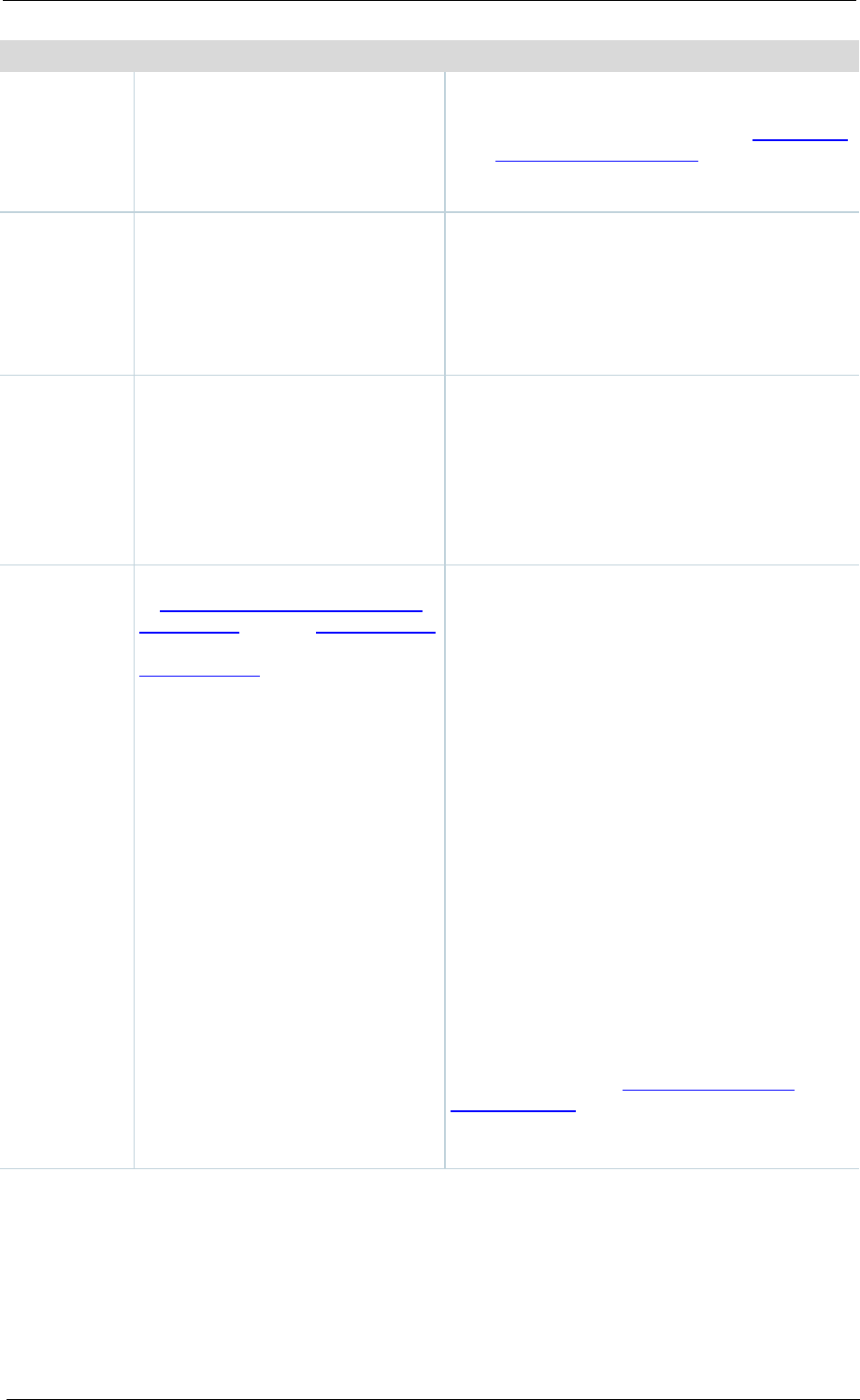
Calling out to record
Cisco TelePresence Content Server 4.1 printable online
Page 21 of 121
Field
Field description
Usage tips
Note: Only enter groups and users that
have been added to the Groups and users
list on the Content Server (see
Adding and
updating groups & users) in this field;
otherwise, the entry will be removed when
you click Check access list or Place call.
Password
If required, enter a password to
restrict streaming access to this
conference and the ability to
download content. The password
will be visible in clear text to editors
of this conference and to site
managers.
If no password is entered, then users who can
view the conference in the Conference list will
be able to play the conference and download
any available content. If a password is entered,
users will need to know the password to stream
or download the conference.
Automatically
make
recorded
conference
available
Select to make the conference
automatically available to the users
specified in Who can view this
conference above after recording
has finished.
When not selected, the groups and users
specified in Who can view this conference
above cannot see the conference in the
Conference list until the conference is made
available by an editor (see Who can edit this
conference below). This may be useful if
editors want to make changes to the conference
before making it available to others.
Who can edit
this
conference
Groups and users who will be able
to edit conference information and
permissions, use the Content Editor
to change the conference, add
further outputs to a completed
conference using the Manage
Outputs page, and delete the
conference. Use Check access list
to validate your entries. They are
also checked when you click Place
call.
Enter all or part of the name or display name of
the group or user - either one per line or
separated by a semicolon. If only part of a group
or user name has been entered, then clicking
Check access list or Place call adds all
matching groups and users to the list.
Note: After clicking Check access list or Place
call, the users entered will have the following
formats:
• Local authentication mode:
MACHINENAME\user.name
• Domain authentication mode:
DOMAINNAME (optional)\user.name
• LDAP authentication mode: user.name
All groups will be in the format group.name
where the group name is expanded to the full
LDAP name (for example, “CN=group.name,
OU=staff, DC=company, DC=com”).
Note: Only enter groups and users that have
been added to the Groups and users list on the
Content Server (see
Adding and updating
groups & users) in this field; otherwise, the entry
will be removed when you click Check access
list or Place call.


















